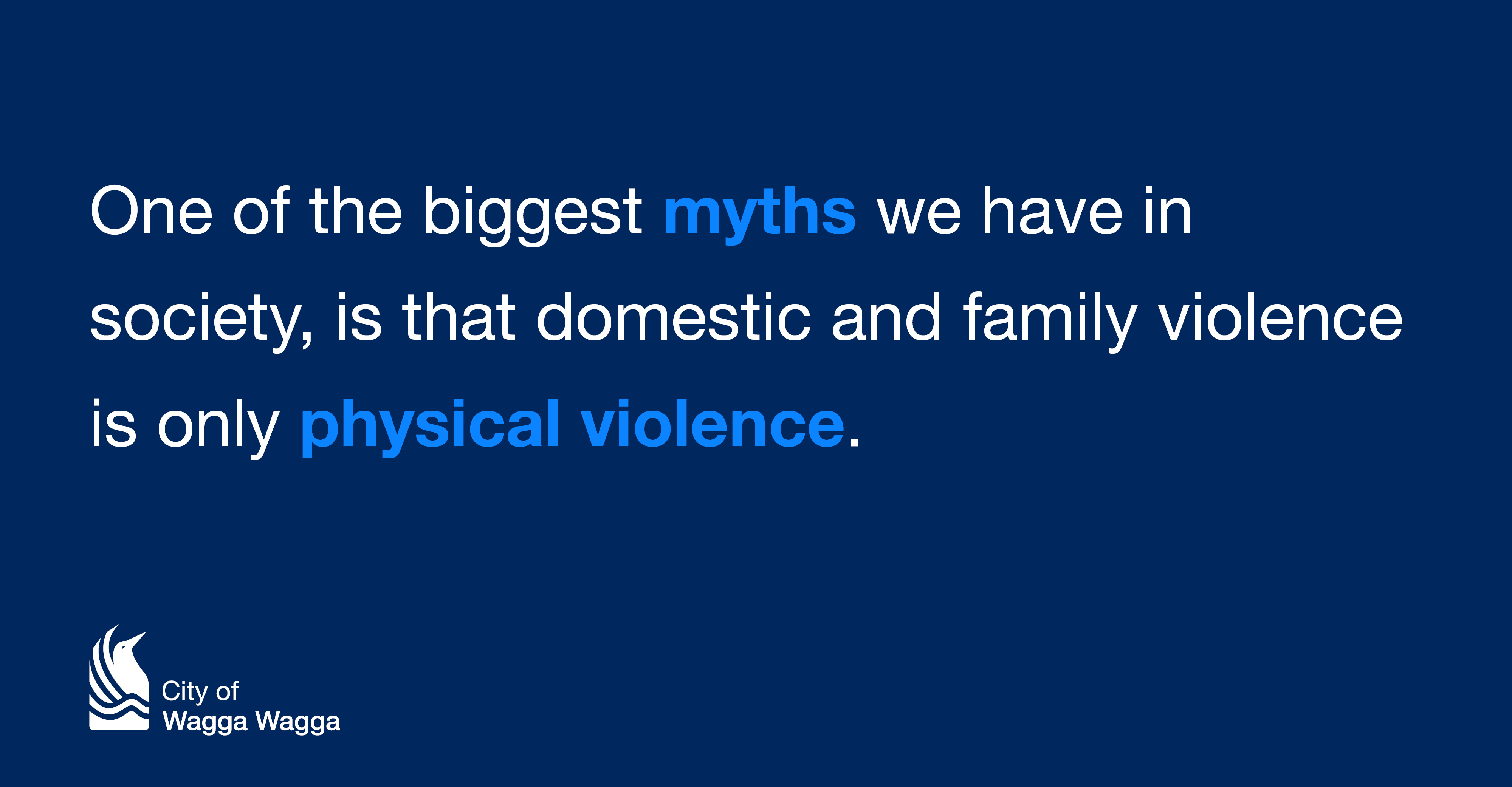We do Respect?
We do Respect was a community campaign, designed to empower individuals to speak up when they see or hear disrespectful or inappropriate behaviour.

Learn more about the campaign:
16 Days of Activism
Each year the 16 Days of Activism campaign calls for action against one of the world’s most persistent violations of human rights – violence against women.
Emphasising the link between violence against women and human rights, the campaign starts on 25 November, the International Day for the Elimination of Violence Against Women and finishes on 10 December, International Human Rights Day.

Domestic violence does not always involve physical violence. There are other kinds of equally damaging abuse, none of which are acceptable. Often abuse targets the emotional and psychological wellbeing of the victim, and it's a precursor to physical abuse.
The 2020 focus was on the 10 different forms of abuse, which make up domestic and family violence and what they can look like in today's society.
Verbal abuse
Verbal abuse may include:
- swearing and continual humiliation, in private or in public
- attacks on intelligence, sexuality, body image and capacity as a parent and spouse
- ridiculing religious beliefs or ethnic background
- screaming, shouting, name-calling or put-downs
Physical abuse
Physical abuse might look like:
- direct assault on the body (choking, strangulation, shaking, eye injuries, biting, slapping, pushing, spitting, burning, punching, kicking, pulling hair)
- use of weapons including objects
- locking the victim in or out of the house or rooms
- Withholding food, medicine or not allowing a person to sleep.
Psychological abuse
Psychological abuse can include:
- creating fear, such as driving dangerously, possessing weapons, angry looks
- destroying property or valued possessions
- hurting or killing pets in front of family members
- making threats regarding custody of any children
Emotional abuse
Emotional abuse might look like:
- blaming the victim for all problems in the relationship
- constantly comparing the victim with others to undermine their self-esteem and self-worth
- sporadic sulking
- withdrawing all interest and engagement (E.g. weeks of silent treatment)
- emotional blackmail and suicidal threats
Social abuse
Social abuse can include:
- isolation from family and friends or limiting contact with family and friends
- instigating and controlling the move to a location where the victim has no established social circle or work opportunities
- restricting use of the car or telephone
- forbidding or physically preventing the victim from going out and meeting people
Financial abuse
Financial abuse could include:
- forbidding access to bank accounts
- providing only a small ‘allowance’
- not allowing the victim to work or have a job
- forcing the victim to sign documents or make false declarations
- using all the wages earned by the victim for household expenses
- controlling the victim’s pension
Sexual abuse
Whether you’re single, married or in a relationship, no-one has the right to make you do sexual things that you don't want to do.
Sexual abuse may include:
- touching a person or kissing them without their consent
- forcing or pressuring a person to have sex or do something sexual they don’t want to
- criticising or using sexually degrading insults
Harassment and stalking
The harassment may come in the form of:
- following and watching
- repeated telephone or online harassment
- tracking with Global Positioning Systems (GPS)
- notes left at your home, workplace or on your car
- unwanted flowers or gifts sent to your home
Spiritual or religious abuse
Spiritual abuse could include:
- using spiritual or religious beliefs to scare, hurt or control you
- stopping you from practising your spiritual or religious beliefs
- forcing you or your children to take part in spiritual or religious practices when you don't want to
- forcing you to raise your children according to spiritual or religious beliefs you don't agree with
- using religious or spiritual leaders or teachings to force you to stay in the relationship or marriage
Reproductive abuse
Reproductive abuse can include:
- forcing or pressuring you to have unprotected sex, become pregnant or have an abortion
- passing on a sexually transmitted infection they know they have
- doing things to stop your birth control, such as throwing them away, hiding them, stopping you from buying them
- preventing or limiting your access to sexual health services and information
Image-based abuse
Image-based abuse can include:
- when a nude or sexual image of you is taken and shared without your consent
- sharing or threatening to share intimate, nude or sexual photos or videos of you to friends, family, strangers in person, on the internet, on social media sites, or through a text message or app
- accessing personal computer files to steal images
- photoshopping a person's image onto a sexually explicit photo or video
- taking images of a woman's cleavage or under her skirt
Reflect Respect
Reflect Respect – A modern day guide for gentlemen was initially launched in 2018 by Wodonga Council and the Wodonga Family Violence Taskforce to reduce incidents of intimate partner violence by addressing the underlying gendered drivers.
As part of theDVproject:2650, Wagga Wagga City Council partnered with Wodonga Council to build on the existing campaign to launch a second edition guide, with an additional 12 tips specific to Wagga Wagga.
The guide aims to address the rates of domestic violence by challenging the subtle things we say and do, which lead to gender inequality and disrespect.
Reflect Respect aimed to challenge social norms, attitudes and behaviours to help promote respectful relationships in our community.
Reflect Respect community message – Wagga Wagga
A Reflect Respect community message was developed during the height of the 2020 pandemic, as a timely prevention reminder to the Wagga Wagga community about being respectful in their homes and on the street.
Sebastian J. Thomas, AKA the modern-day gentleman, delivers a community message about upholding respectful relationships, while at home and out in the community.
